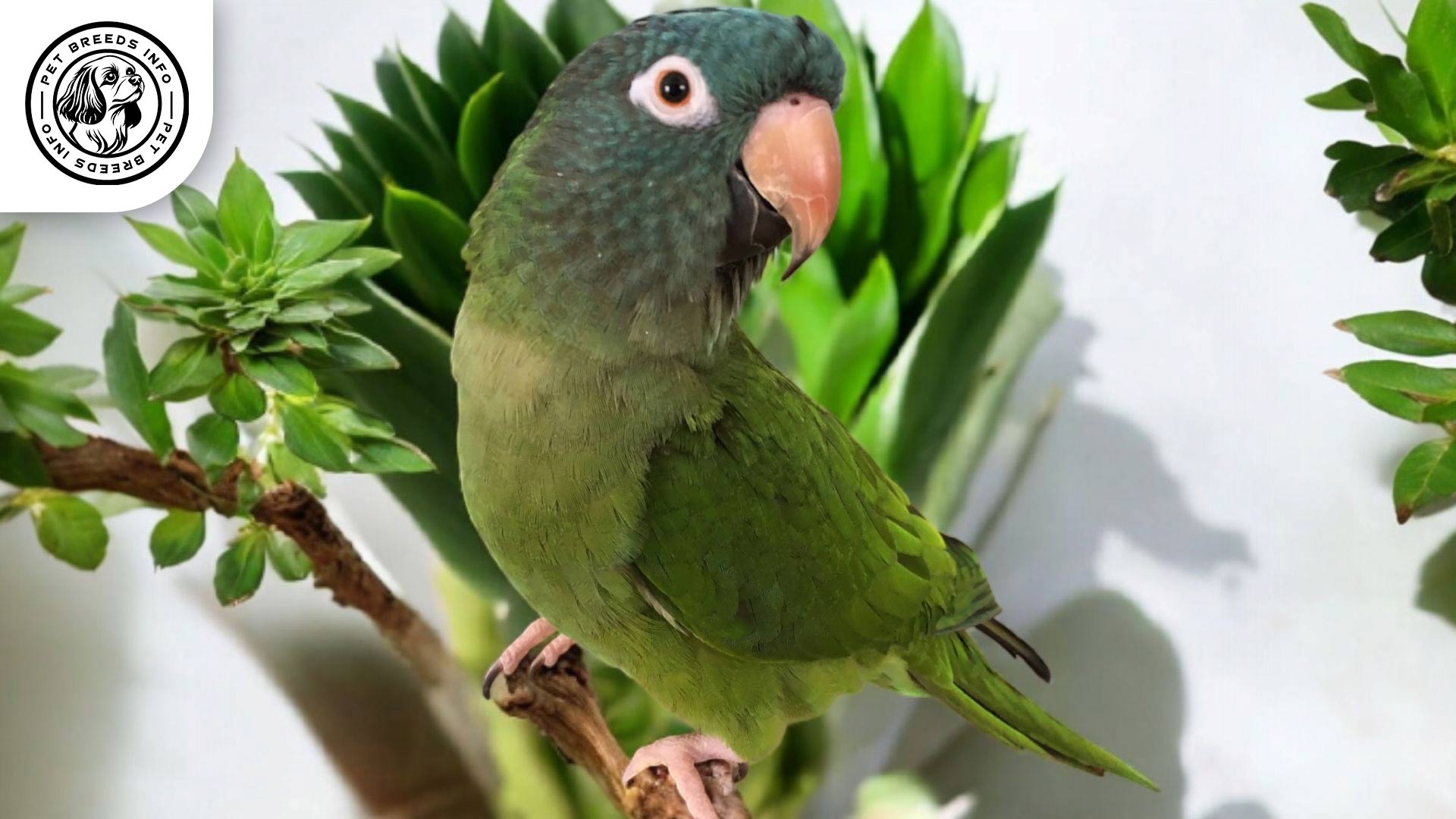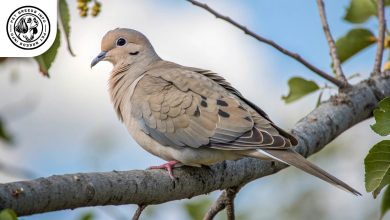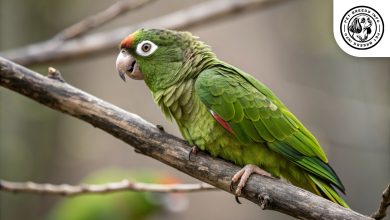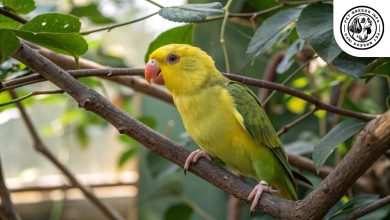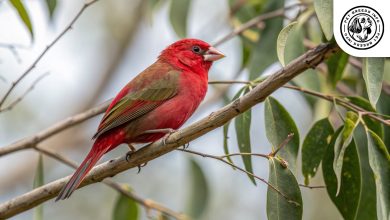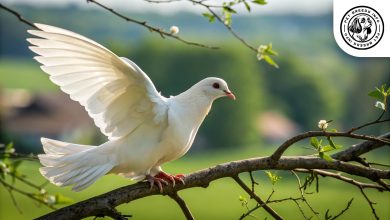Blue-crowned Conure Bird: Personality, Lifespan, Food & Care
General Introduction of the Breed
The Blue-crowned Conure (Thectocercus acuticaudatus) is a medium-sized parrot known for its vibrant appearance and intelligent nature. It is also commonly referred to as the Blue-crowned Parakeet. This bird is native to South America, particularly found in Argentina, Bolivia, Brazil, Colombia, Paraguay, and Venezuela.
The Blue-crowned Conure has been a beloved pet for many years due to its social and affectionate personality. They are highly sought after among bird enthusiasts and are known for their capability to mimic speech to some extent.
Table of Contents
| Common Name | Blue-crowned Conure |
| Scientific Name | Thectocercus acuticaudatus |
| Origin | South America (Argentina, Brazil, Bolivia, Colombia, Paraguay, Venezuela) |
| Size | 14–15 inches (35–38 cm), medium-sized |
| Lifespan | 25–30 years |
| Colors | Green body, bright blue crown, reddish tail, yellowish underparts |
| Talking Ability | Moderate – can learn some words and phrases |
| Noise Level | High – can be loud, especially mornings and evenings |
| Social Behavior | Highly social, affectionate, bonds well with humans and compatible pets |
Physical Characteristics
The Blue-crowned Conure typically measures around 14 to 15 inches (35-38 cm) in length, including its long tail. It generally weighs between 140 to 190 grams.
This bird has a striking green body, with its most distinctive feature being its bright blue crown extending from the forehead to the back of its head. The wings and back are primarily green, while the underside has a slightly yellowish-green tint. The tail is long and tapered with a reddish hue on the underside.
The Blue-crowned Conure has dark brown eyes with a white eye-ring that gives it a unique and expressive look. It has a strong, curved beak that is typically black or dark gray.
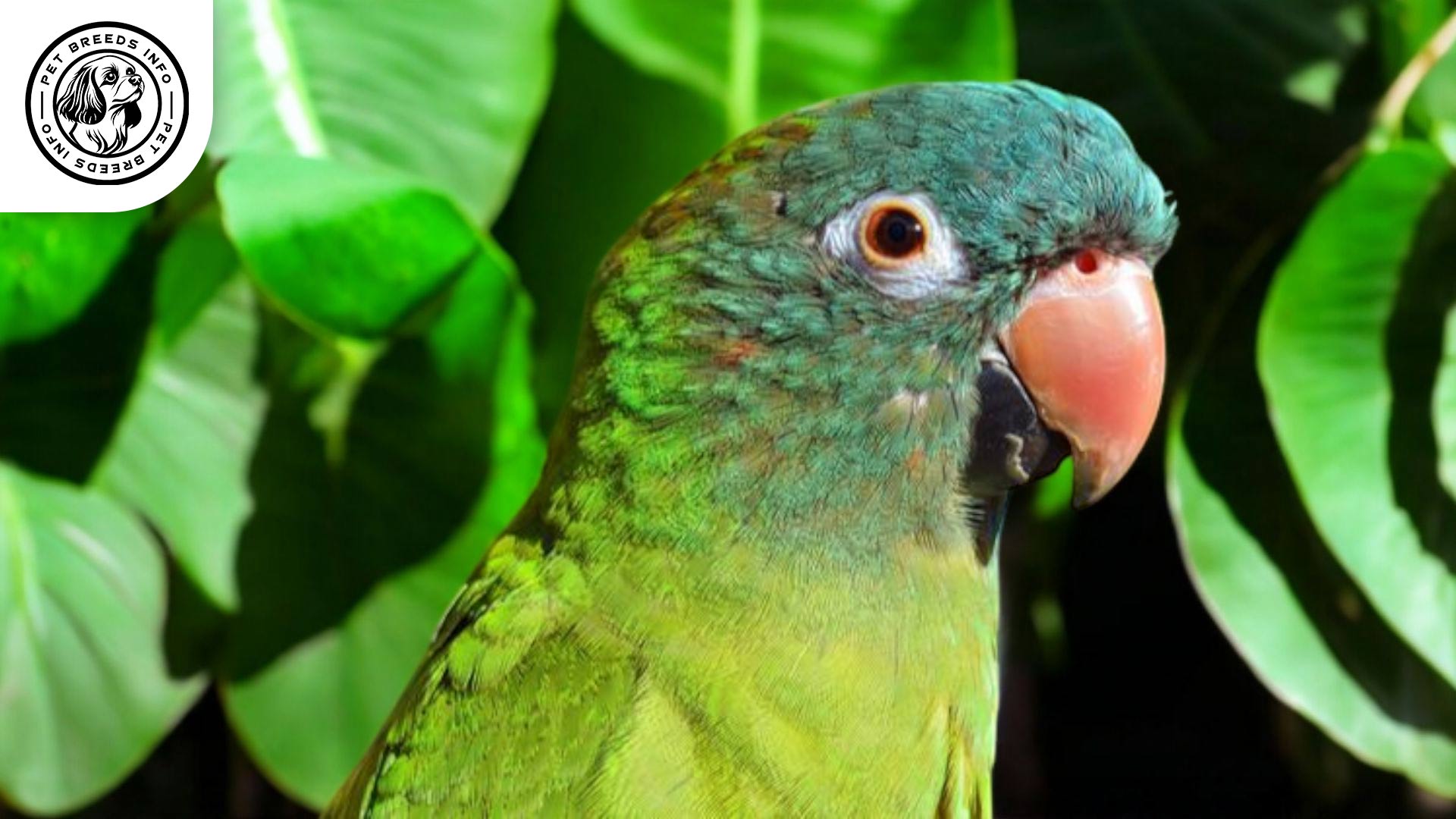
Personality and Temperament
Blue-crowned Conures are highly intelligent and curious birds. They are quick learners and can be taught a variety of tricks and commands.
These birds are very active and require plenty of mental stimulation and exercise to stay happy and healthy. They enjoy climbing, playing with toys, and socializing with their owners.
They are affectionate and form strong bonds with their human families. They thrive on interaction and can suffer from loneliness if left alone for long periods.
Blue-crowned Conures are social birds and generally get along well with humans, children, and other non-aggressive pets. They are playful and enjoy engagement in various activities.
Although they are not the best talkers compared to other parrots, they can learn some words and phrases with effort. They are known to be sensitive to their environment and can become stressed if their routine is disrupted.
Care and Maintenance Requirements
These birds require a lot of exercise, so they should have access to a spacious cage with plenty of toys, perches, and climbing structures. Daily out-of-cage time is necessary to keep them active and mentally stimulated.
Blue-crowned Conures are suitable for apartments if their noise level is tolerated. They can be loud, especially during morning and evening calls.
They require minimal grooming, such as regular nail trimming, feather maintenance, and beak health checks. Bathing or misting with water a few times a week helps to keep their feathers clean.
They are sensitive to extreme temperatures, so their environment should be kept at a comfortable room temperature.
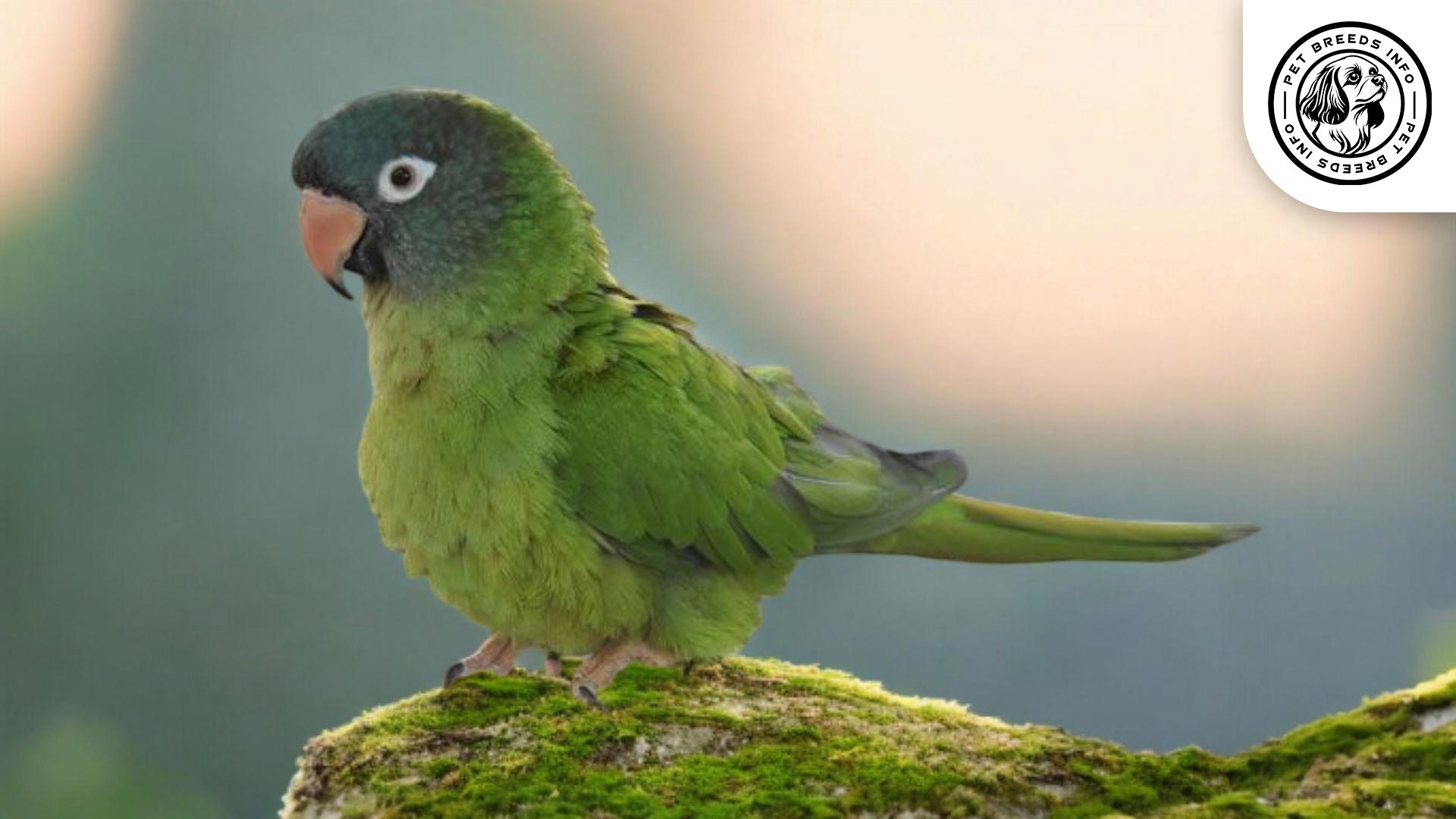
Diet and Nutrition
A balanced diet for a Blue-crowned Conure includes high-quality pellets, fresh fruits, vegetables, and occasional seeds or nuts as treats.
Avoid feeding them avocado, chocolate, caffeine, alcohol, salty foods, and foods high in fat and sugar, as these can be toxic to birds.
Read More: Green-winged Macaw Bird
They should have access to fresh drinking water at all times, and portion sizes should be controlled to maintain a healthy weight.
Health and Common Medical Issues
Blue-crowned Conures are generally healthy birds but can be prone to respiratory infections, feather plucking (if stressed or bored), and Psittacine Beak and Feather Disease (PBFD).
They are also susceptible to vitamin deficiencies if not provided with a well-balanced diet.
The average lifespan of a Blue-crowned Conure is 25 to 30 years with proper care.
Regular veterinary check-ups are important to monitor their health and ensure they are receiving the necessary vaccinations and parasite control.
Training and Behavior Management
Blue-crowned Conures are intelligent and can be trained with positive reinforcement techniques such as treats, praise, and repetition.
They respond well to early socialization and should be exposed to various people and environments to become well-adjusted pets.
They can be taught commands, tricks, and even some speech, although their talking ability is moderate compared to other parrots.
Setting boundaries and being consistent in training is crucial to avoid behavioral problems such as excessive screaming or biting.
Read More: Green-faced Parrotfinch Bird
Interaction with Other Animals and Humans
They are affectionate birds that enjoy spending time with their owners and form strong bonds with them.
They generally get along well with children, provided interactions are supervised to ensure gentle handling.
They can coexist with other birds and pets as long as they are introduced properly and monitored closely.
Blue-crowned Conures are best suited for owners who can provide plenty of social interaction and attention, as they thrive on companionship.
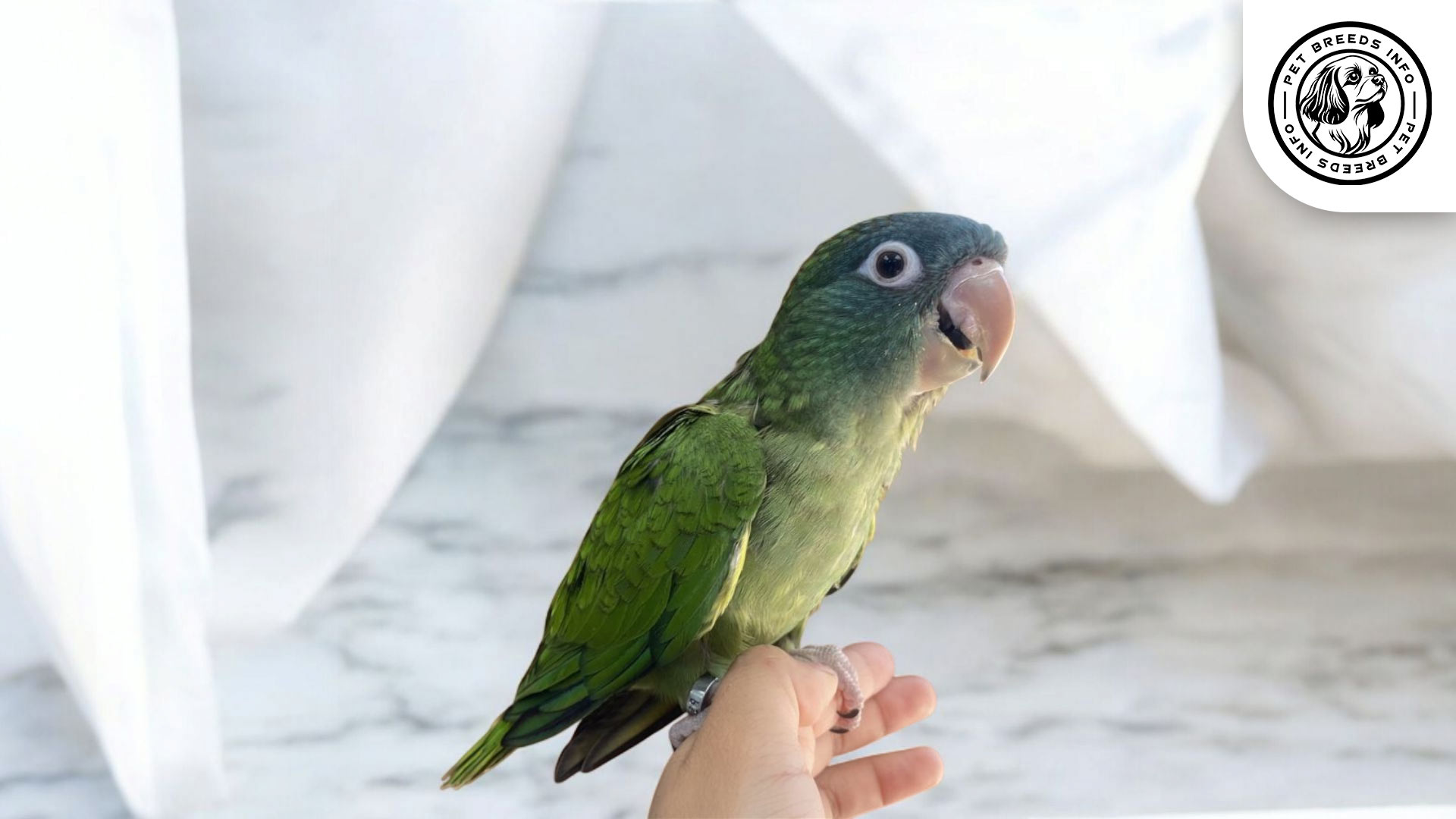
Price and Availability
Blue-crowned Conures typically cost between $400 to $1,200, depending on the breeder, location, and bird’s age.
It is recommended to acquire them from reputable breeders, bird rescue organizations, or adoption centers that provide proper health records and responsible breeding practices.
Before getting a Blue-crowned Conure, potential owners should consider their long lifespan, noise level, and need for social interaction.
Conclusion and Final Thoughts
The Blue-crowned Conure is a wonderful pet for those who can dedicate time to its care, training, and companionship. They are ideal for families or individuals who enjoy an interactive and playful bird.
They require a stimulating environment, regular handling, and mental enrichment to stay happy and healthy.
Read More: Hoffmann’s Conure Bird
If you are looking for an affectionate, intelligent, and active parrot, the Blue-crowned Conure is an excellent choice, but they do require commitment and responsibility.
FAQ
Is the Blue-crowned Conure a good pet for beginners?
It’s best suited for intermediate to experienced bird owners due to its need for interaction, attention, and moderate noise level.
Can Blue-crowned Conures talk?
Yes, they can mimic some words and phrases, but they are not among the best talkers compared to other parrots.
How noisy are Blue-crowned Conures?
They can be quite vocal, especially in the mornings and evenings. They are not ideal for noise-sensitive households.
Do they get along with children and other pets?
Yes, they generally do well with children and other pets if interactions are gentle and properly supervised.
